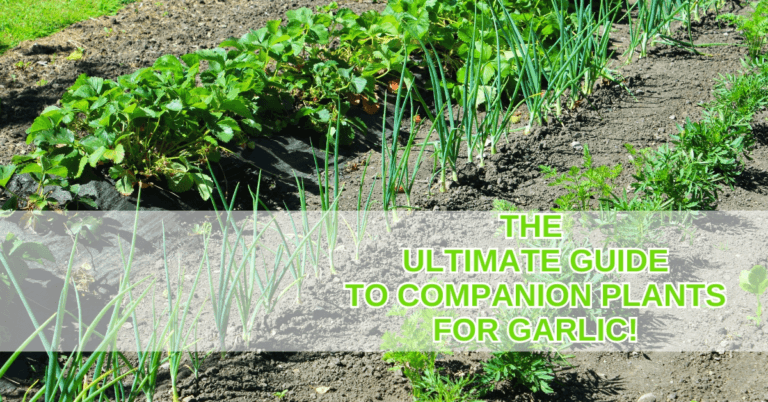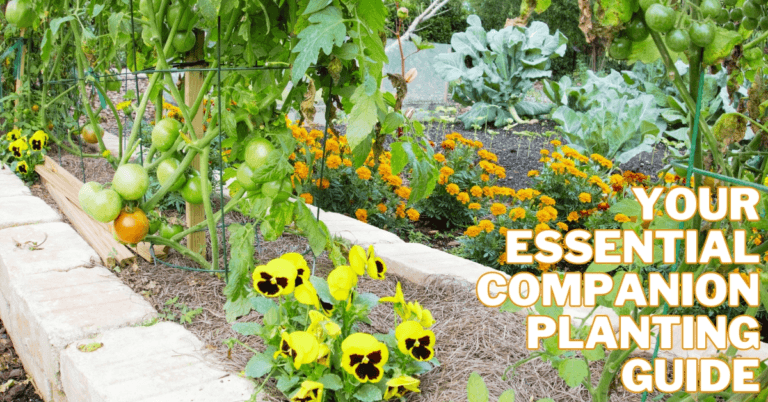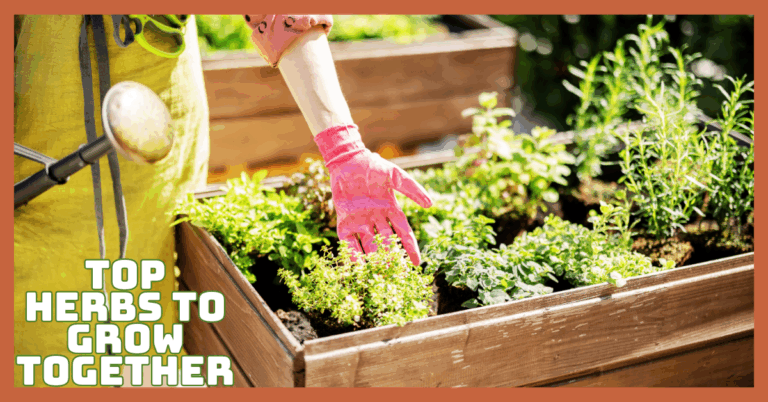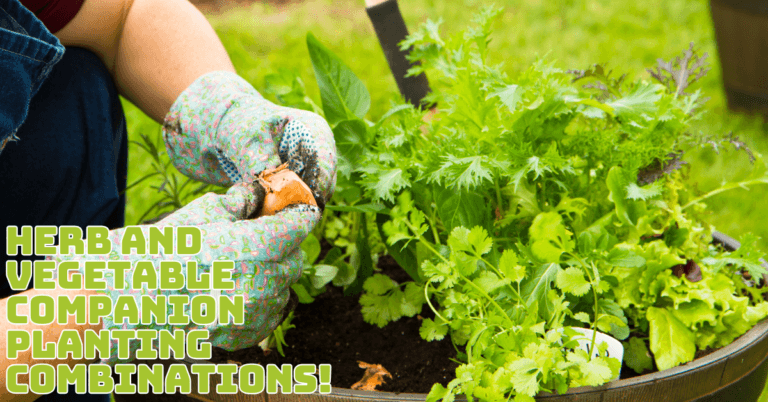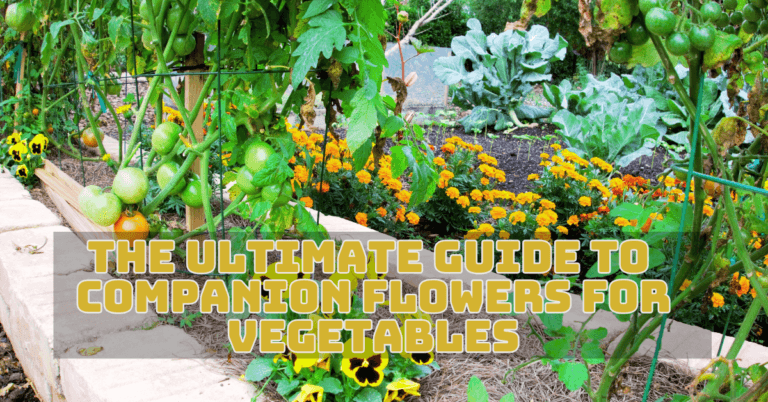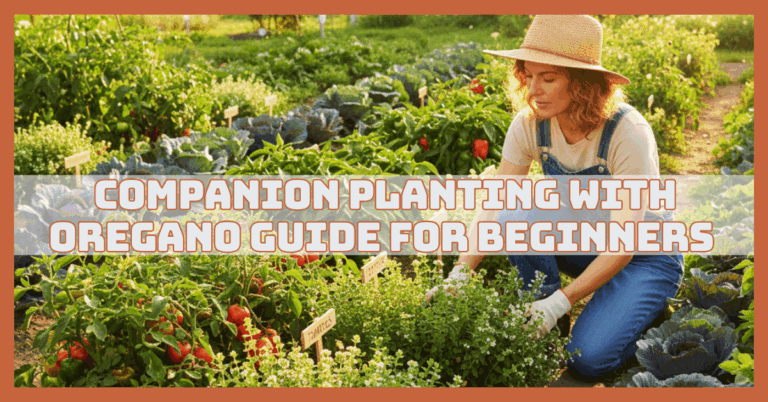Best Guide For Companion Planting With Roses
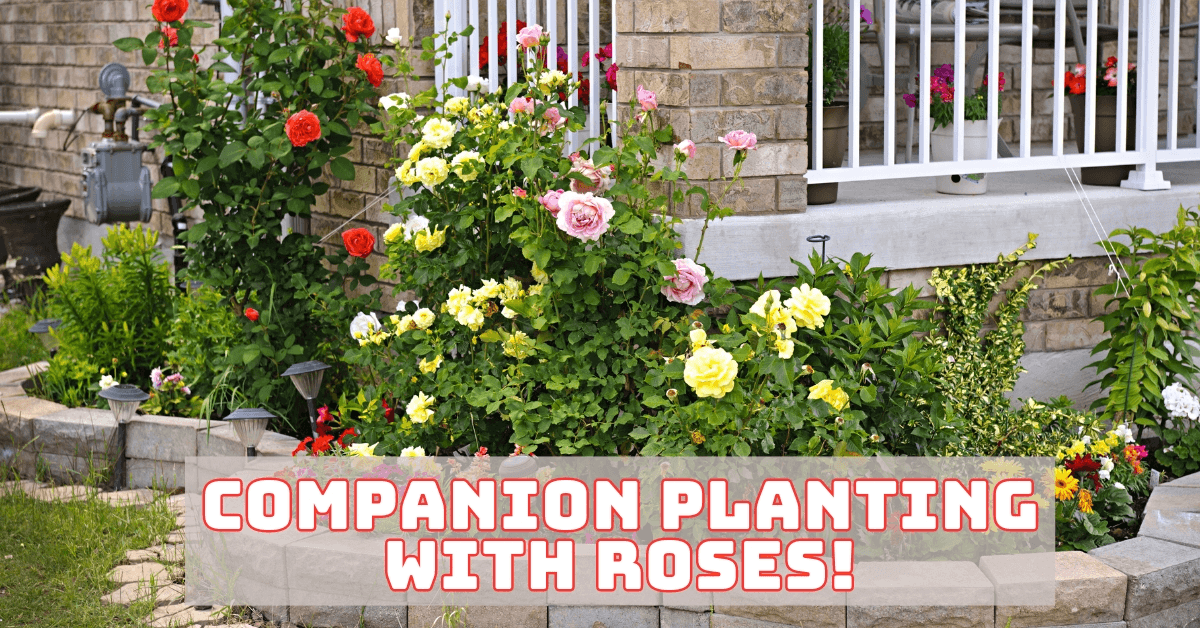
Best Guide For Companion Planting With Roses
Companion planting with roses is a time-honoured gardening technique that increases the health and beauty of your rose garden.
By strategically pairing roses with complementary plants, you can naturally deter pests, improve soil health, and create a diverse landscape.
Whether you're an experienced gardener or a novice, understanding which plants thrive alongside roses can transform your garden into a thriving, aromatic paradise.
This guide will explore the best companion plants for roses, their benefits, and practical tips for successful implementation.
Elevate your gardening skills and enjoy a flourishing rose garden with these expert companion planting strategies. Discover the secrets to lush, resilient roses with perfect plant partnerships.
Benefits Of Companion Planting With Roses
Companion planting with roses offers many advantages that can significantly improve your gardening experience. These benefits include:
1. Pest Control
Certain companion plants can deter pests that commonly attack roses. Aromatic herbs like lavender and rosemary emit strong scents that repel aphids, while marigolds release chemicals into the soil that deter nematodes.
Planting these companions near your roses can naturally lessen pest populations, minimizing the need for chemical pesticides and promoting a healthier garden environment.
2. Disease Prevention
Some plants possess natural antifungal properties that help protect roses from diseases such as black spots and powdery mildew.
For instance, garlic and chives release sulphur compounds that act as natural fungicides. Planting these alongside your roses can create a protective barrier, reducing the incidence of fungal infections and ensuring your roses remain vibrant and healthy.
3. Nutrient Enhancement
Companion plants can significantly improve soil fertility around your roses. Leguminous plants like beans and peas fix nitrogen in the soil, enriching it for neighbouring plants.
Additionally, flowers like yarrow attract beneficial insects that help with pest control, and plants such as comfrey contribute organic matter through their leaf litter, creating a nutrient-rich environment for roses to thrive.
4. Pollinator Attraction
Many companion plants attract pollinators, including bees and butterflies, essential for a healthy garden ecosystem.
Flowers such as cosmos, salvia, and lantana are particularly effective at drawing in these beneficial insects.
Incorporating these plants into your rose garden enhances pollination, supports biodiversity, and creates a lively, buzzing garden atmosphere.
5. Aesthetic Appeal
Combining roses with other plants can create visually stunning garden displays. Mixing various textures, colours, and heights can add depth and interest to your garden.
For example, pairing the soft petals of roses with the spiky foliage of lavender or the vibrant blooms of daylilies can create a dynamic and eye-catching landscape, transforming your garden into a masterpiece of horticultural art.
Best Companion Plants For Roses
Selecting the right companion plants is crucial for maximizing the benefits of companion planting with roses. Here are some of the best plants to consider:
Herbs As Companion Plants For Roses
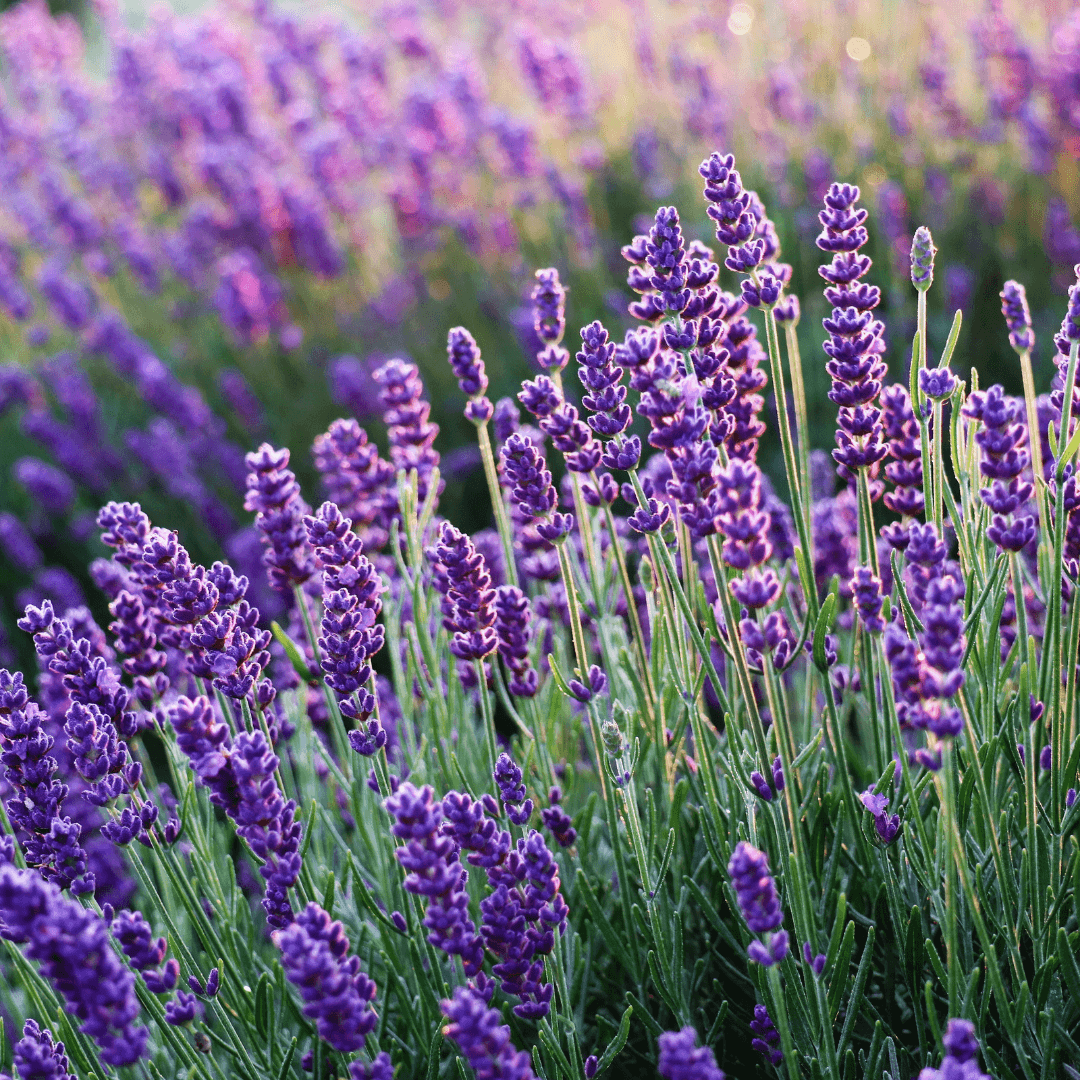
1. Lavender
Lavender is an excellent companion for roses due to its strong fragrance, which deters aphids and other pests.
Additionally, its purple flowers complement the colours of the roses beautifully, creating a visually appealing contrast.
Lavender's aromatic oils also have a calming effect, making your garden a serene and pleasant place to spend time.
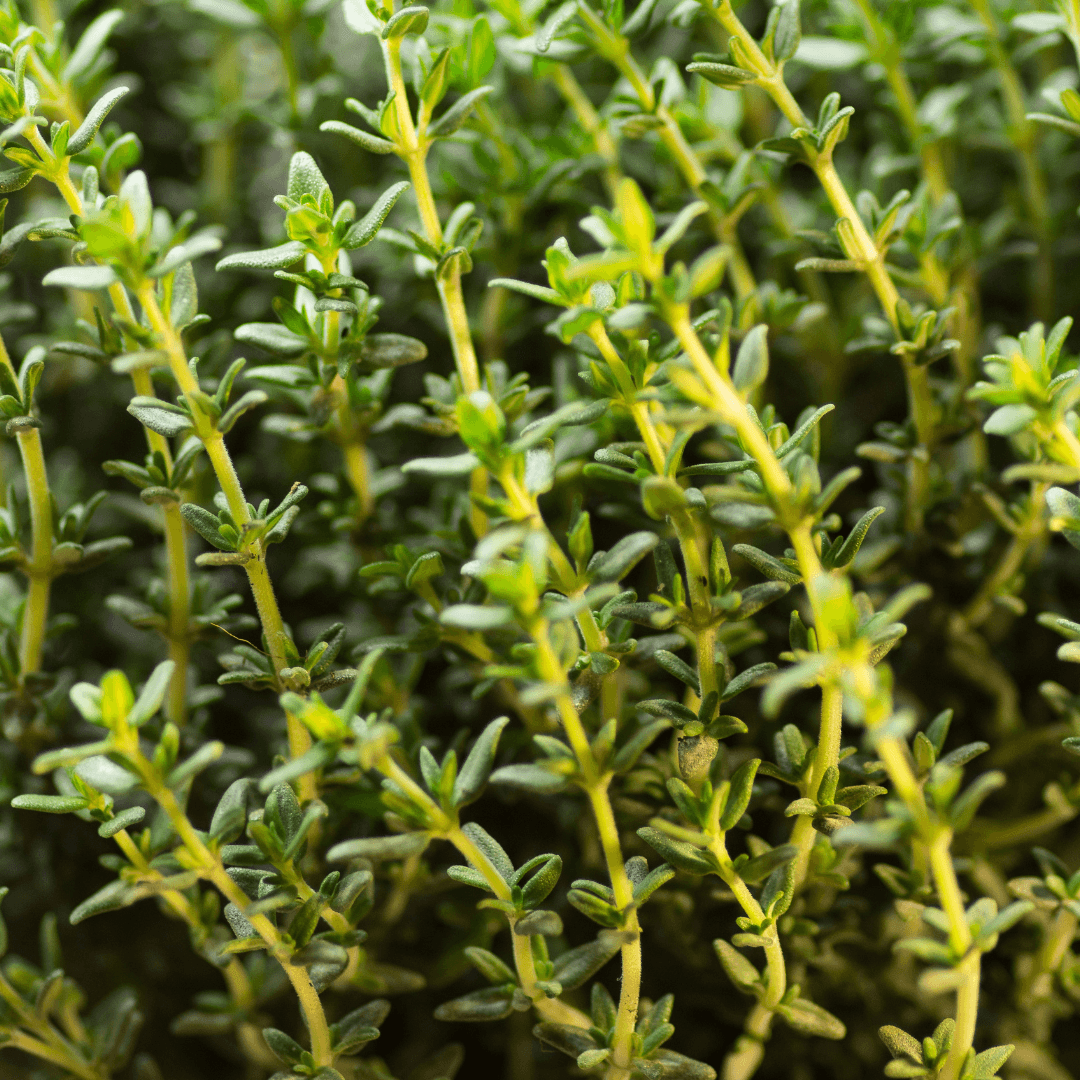
2. Thyme
Thyme, a low-growing herb, is a valuable addition to a rose garden. It helps suppress weeds by covering the ground and preventing weed seeds from germinating.
Moreover, thyme attracts beneficial insects like bees and predatory wasps, which help pollinate your roses and control pest populations, contributing to a healthier garden ecosystem.
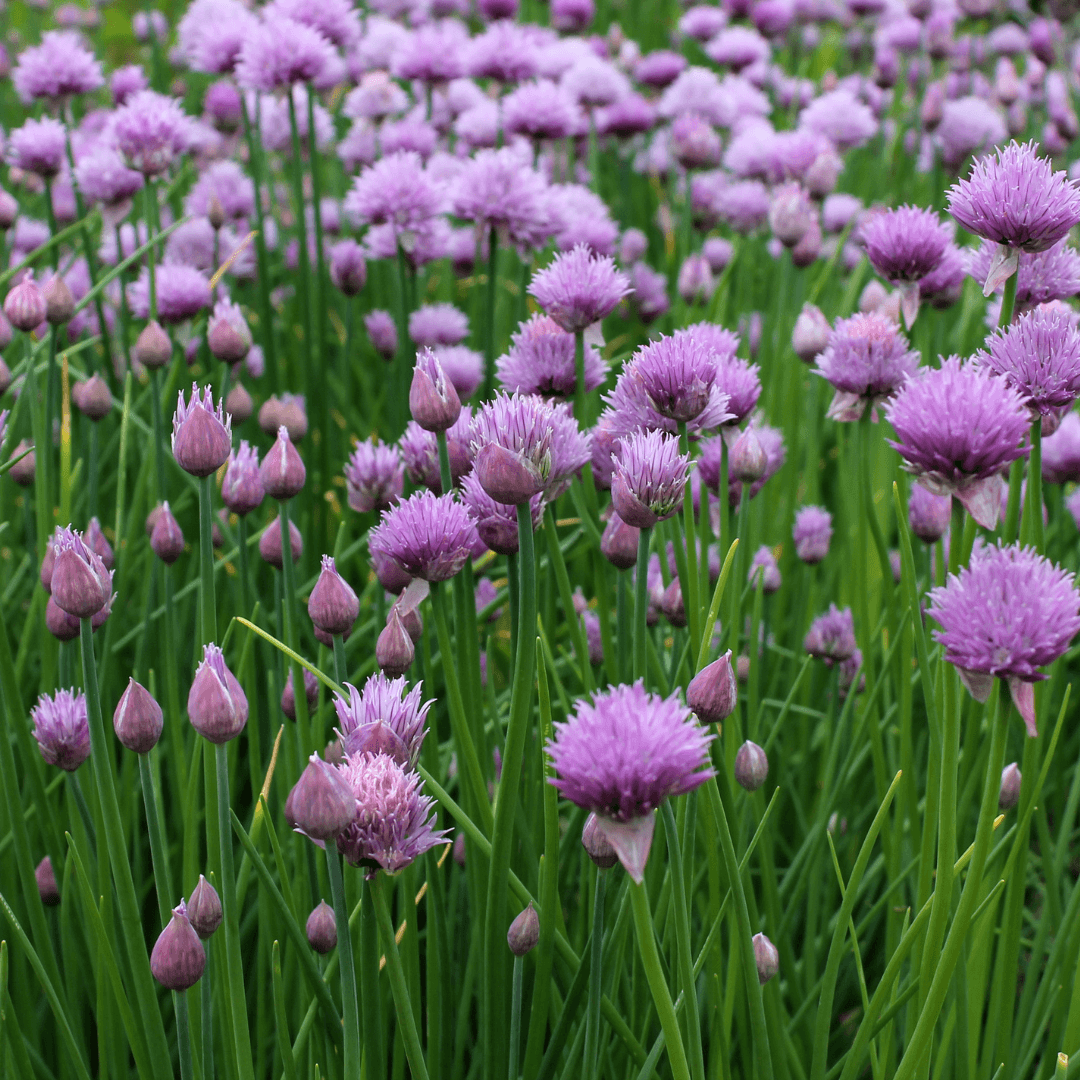
3. Chives
Chives can help repel aphids and combat black spot disease, making them a practical companion for roses.
Their purple flowers add a charming touch to the garden, enhancing its aesthetic appeal. Chives also have the added benefit of being edible, allowing you to enjoy fresh, homegrown herbs from your rose garden.
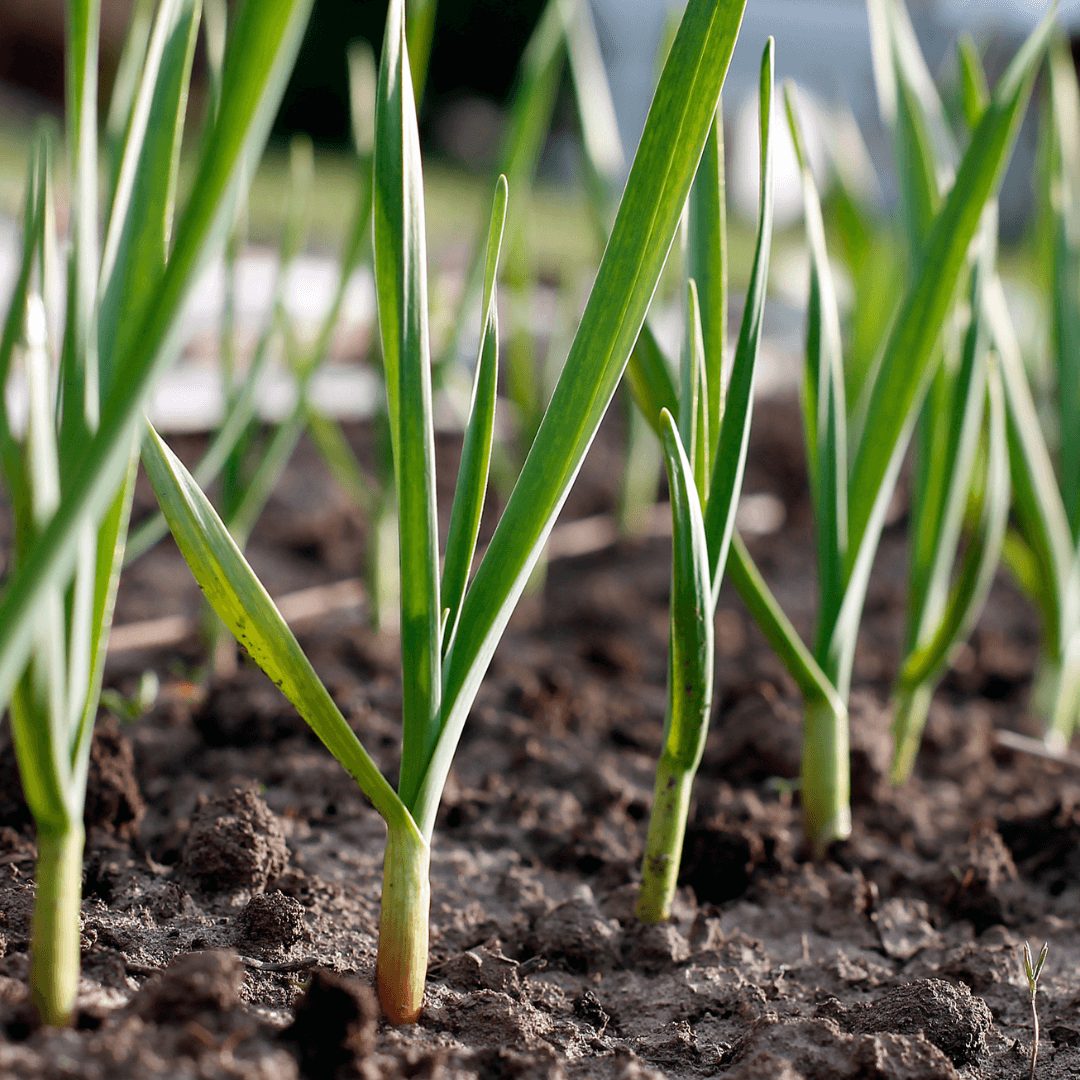
4. Garlic
Roses are susceptible to illnesses like powdery mildew and black spots, but garlic's antifungal qualities can help shield them from these threats.
Planting garlic around roses can also deter pests such as aphids and spider mites, reducing the need for chemical treatments.
Additionally, garlic bulbs can be harvested and used in cooking, making it a dual-purpose plant in your garden.
Flowers As Companion Plants For Roses
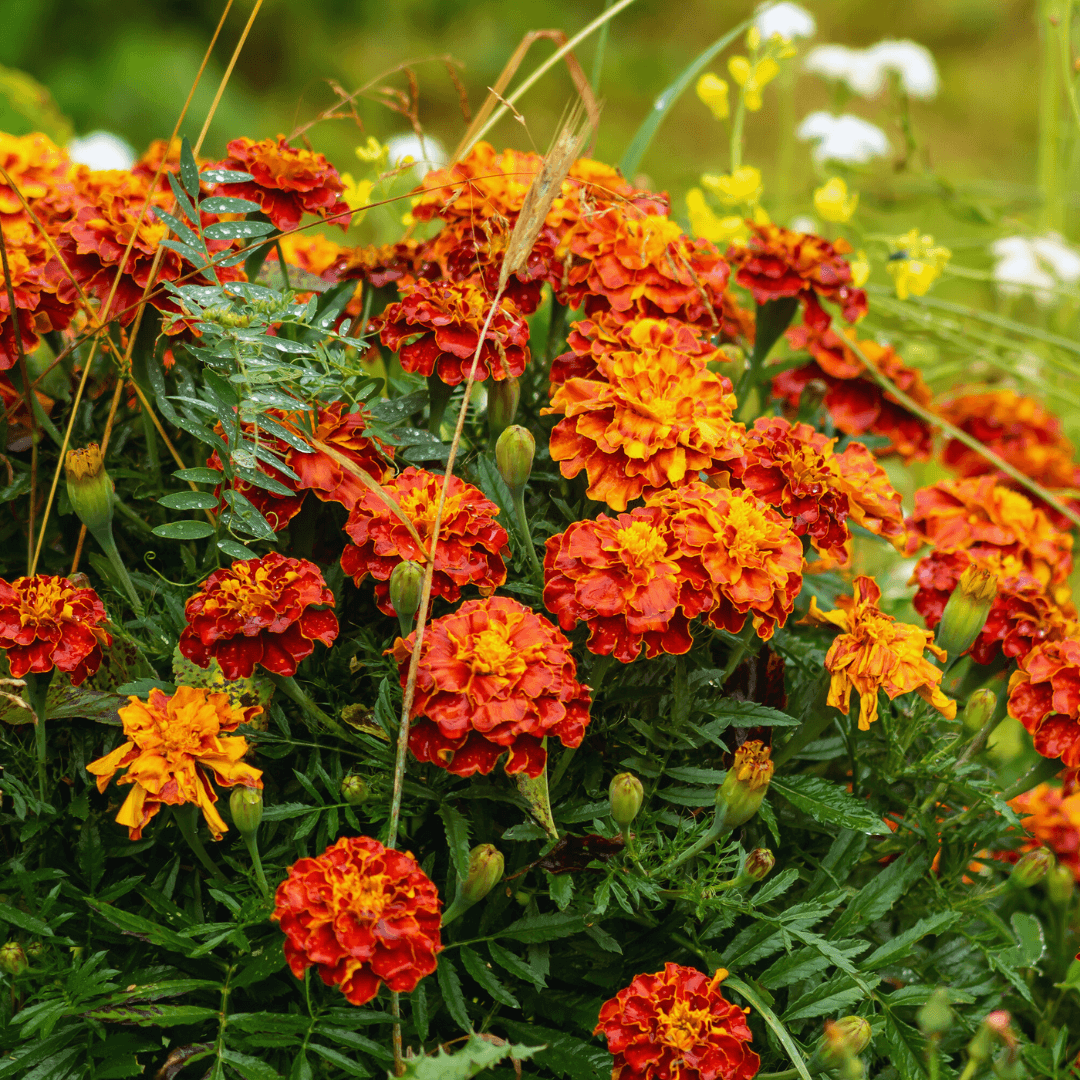
1. Marigolds
Marigolds are renowned for repelling nematodes and other pests, making them valuable to any rose garden.
Their bright orange and yellow flowers add a vibrant splash of colour, creating a cheerful and dynamic visual effect.
Additionally, marigolds are simple to grow and maintain, making them a favourite among gardeners.
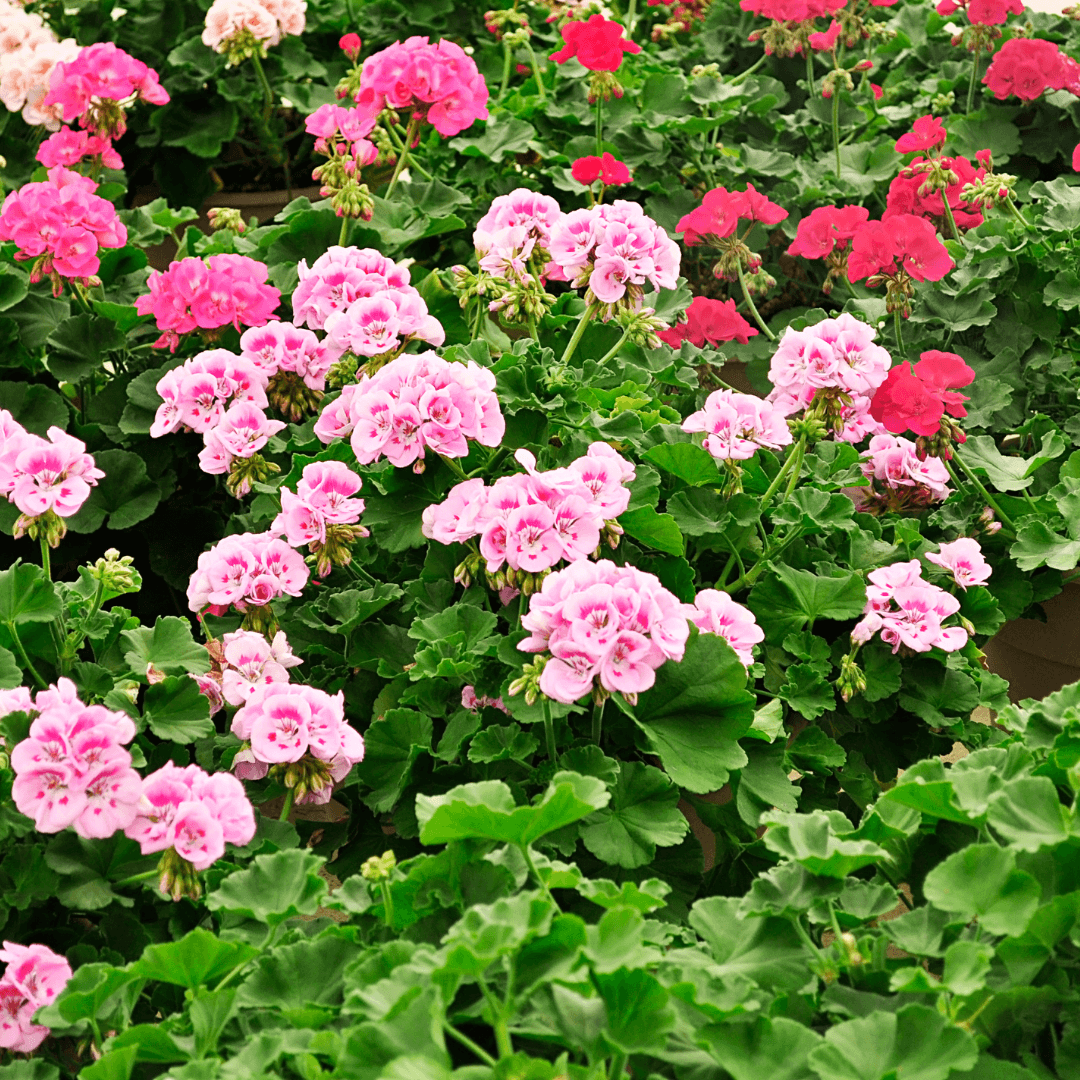
2. Geraniums
Geraniums can help deter Japanese beetles and other rose pests, providing a natural pest control method.
Their varied flower colours, which range from pink and red to white and purple, can complement roses beautifully, enhancing the overall aesthetic of your garden.
Geraniums also thrive in conditions similar to roses, making them an ideal companion plant.
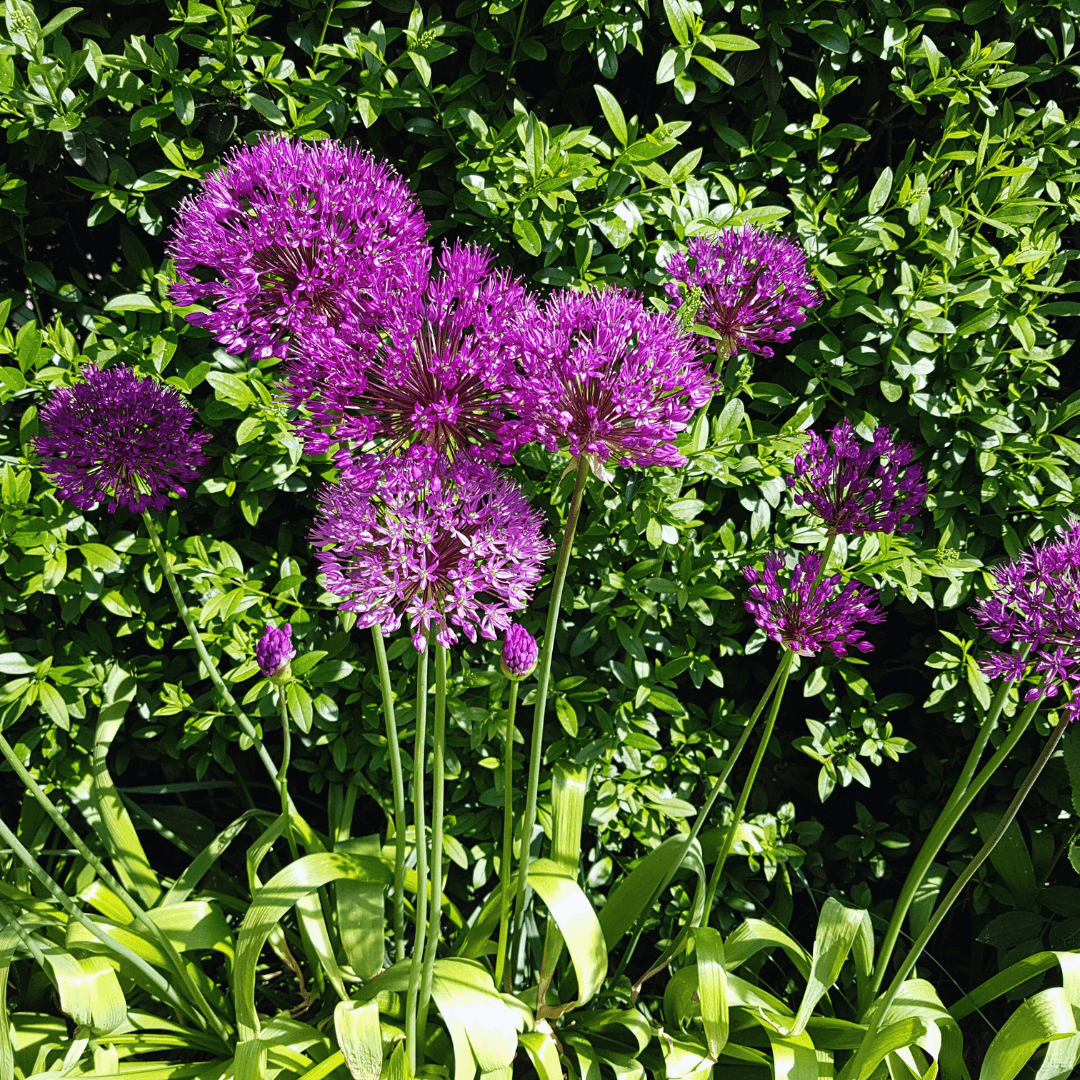
3. Alliums
Alliums, including ornamental onions, are excellent for repelling aphids and other pests. These plants add structural interest to your garden with their tall, spherical flower heads, which come in shades of purple, blue, white, and pink.
Alliums bloom at different times than roses, ensuring continuous visual interest throughout the growing season.
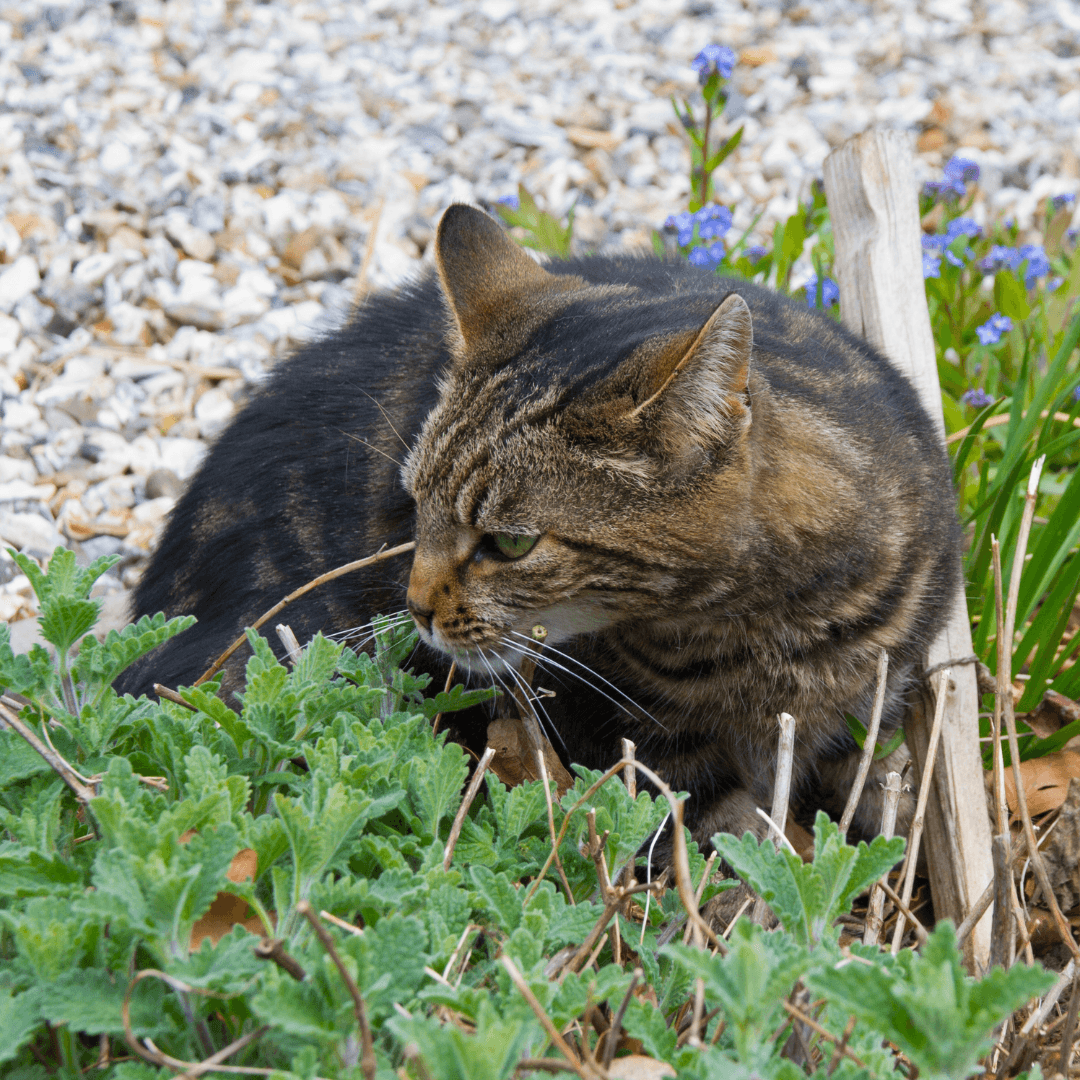
4. Catmint (Nepeta)
Catmint (Nepeta) is a hardy plant that attracts beneficial insects such as bees and ladybugs while deterring aphids; a standard rose pest. Its lavender-blue flowers provide a lovely contrast to the vibrant colours of rose blooms.
Catmint is drought-tolerant and low-maintenance, making it an easy addition to enhance your rose garden's beauty and health.
Vegetables As Companion Plants For Roses
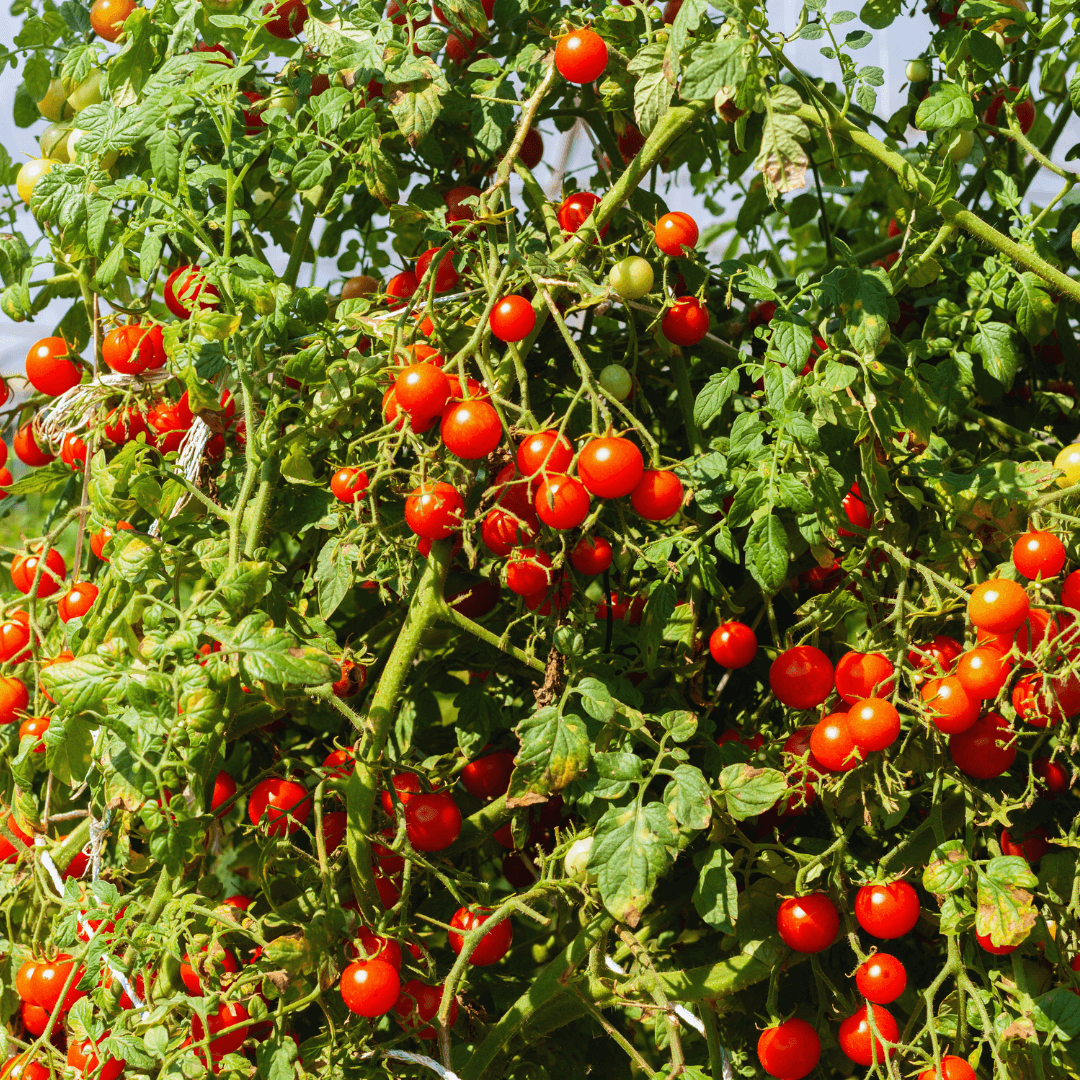
1. Tomatoes
Tomatoes and roses share similar growing conditions, making them excellent companions. Tomatoes can help deter pests like aphids and whiteflies, reducing the need for chemical interventions.
Additionally, their foliage provides partial shade, helping to maintain soil moisture around rose plants and promoting a healthier growing environment for both plants.
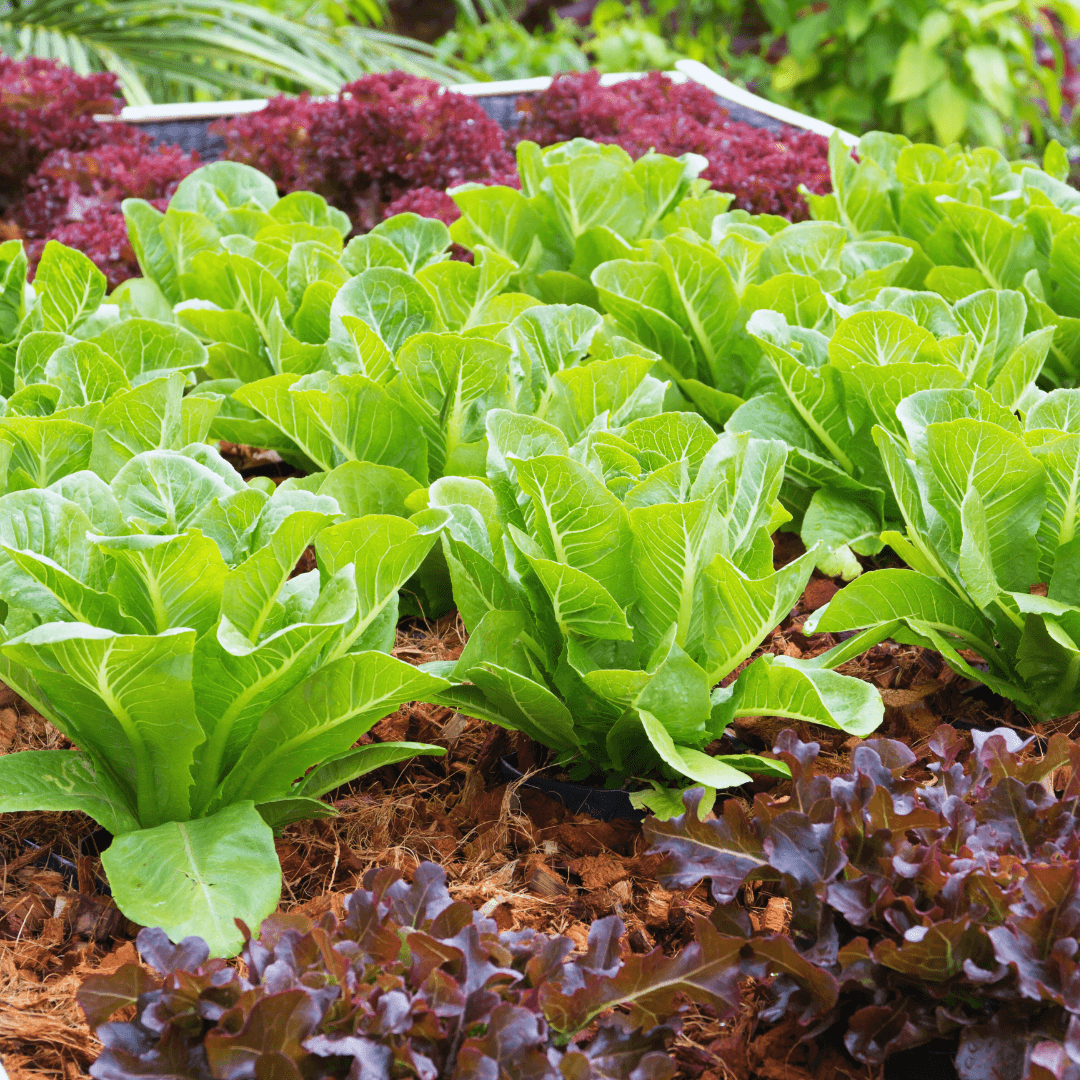
2. Lettuce
Lettuce is a living mulch that helps keep the soil cool and moist around rose plants. It also draws in beneficial insects such as ladybugs and lacewings, which prey on common rose pests.
Lettuce is simple to grow and can be harvested continuously, providing both a practical and aesthetic benefit to your rose garden.
Ground Covers As Companion Plants For Roses
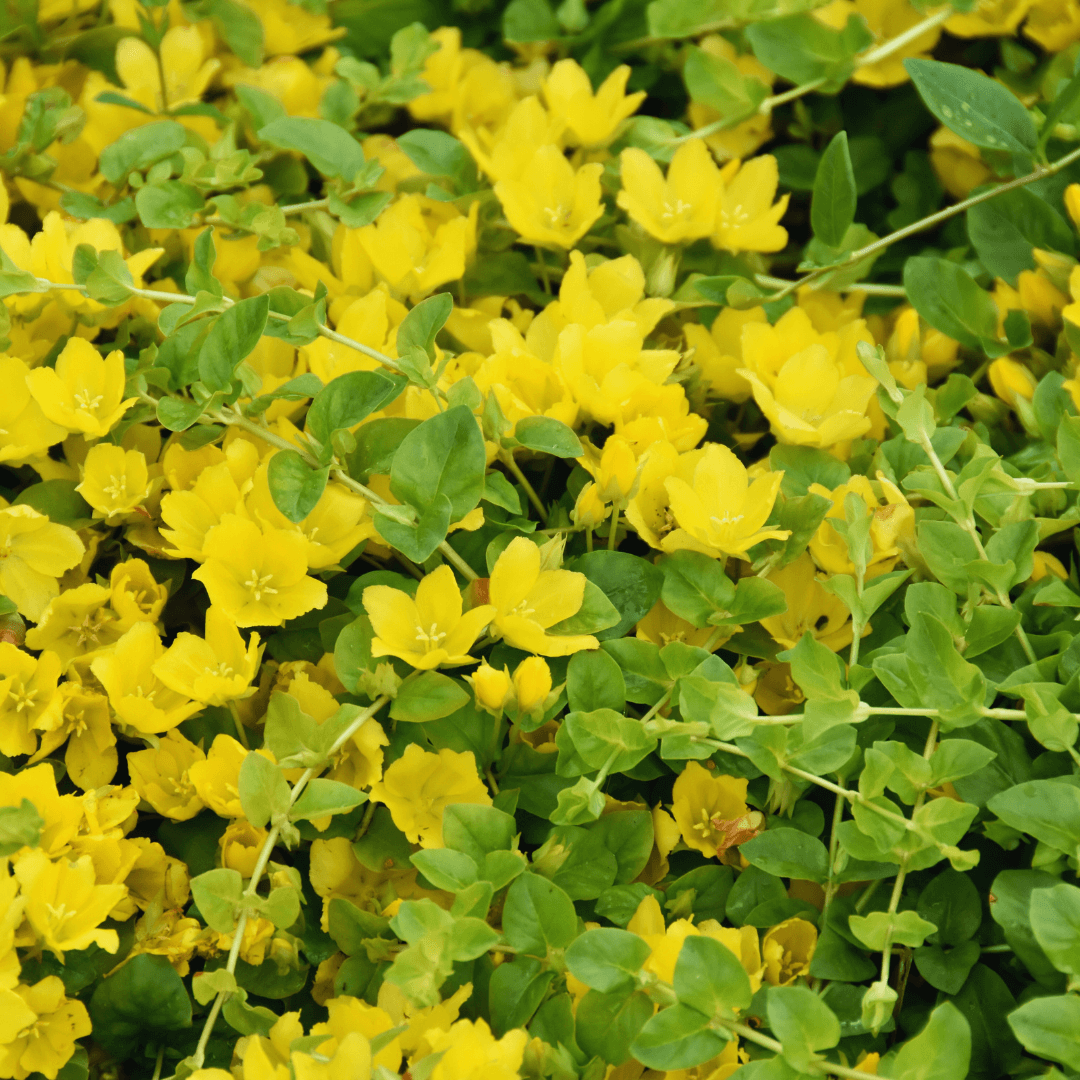
1. Creeping Jenny (Lysimachia nummularia)
Creeping Jenny (Lysimachia nummularia) is a low-growing plant that helps suppress weeds and retain soil moisture around your roses.
Its vibrant yellow flowers can brighten the garden, creating a cheerful ground cover that contrasts beautifully with the colours of rose blooms.
Creeping Jenny's spreading habit makes it a practical and attractive weed barrier.
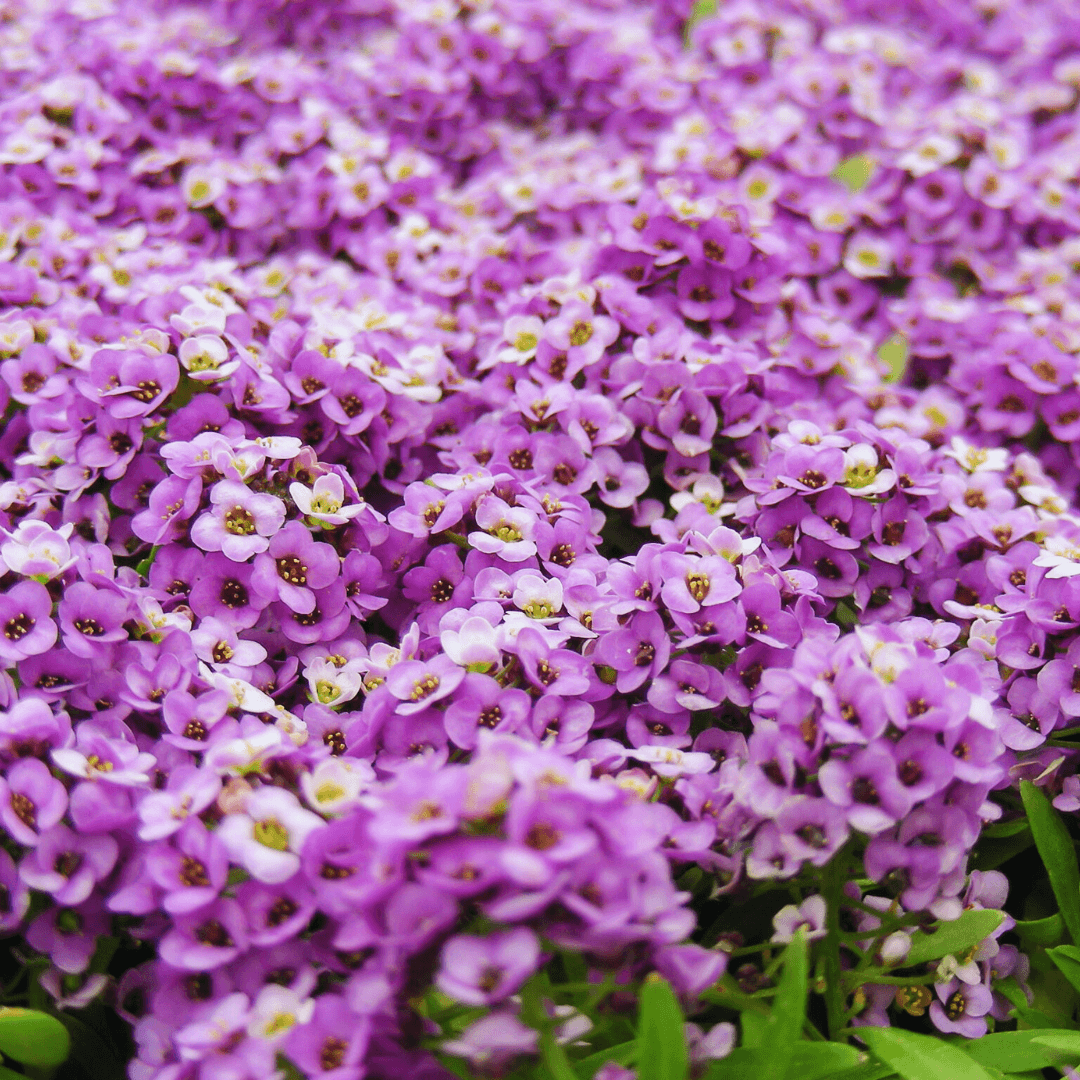
2. Sweet Alyssum (Lobularia maritima)
Sweet alyssum is an excellent ground cover that attracts beneficial insects like hoverflies and parasitic wasps, which help control aphid populations.
Its small, fragrant flowers, which come in white, pink, and purple hues, add a sweet scent to the garden.
Sweet alyssum's dense growth habit also helps suppress weeds and maintain soil moisture, making it a valuable companion plant for roses.
Practical Tips For Companion Planting With Roses
Successfully implementing companion planting with roses requires careful planning and execution. Here are some practical tips to help you get started:
1. Assess Your Garden Space
Before selecting companion plants, assess your garden space to determine the available sunlight, soil type, and moisture levels.
Roses prefer full sun and well-drained soil, so choose companion plants that thrive in similar conditions.
Understanding your garden's microclimate helps ensure all plants receive nutrients and light. Consider any shaded areas and drainage patterns to match the right plants to the right spots, optimizing their growth and health.
2. Consider Plant Spacing
Proper spacing is crucial for companion planting with roses. Overcrowding can cause competition for nutrients and heighten disease susceptibility.
Plants should be spaced sufficiently apart for good air circulation and healthy growth. This lessens the risk of fungal infections and other issues that thrive in humid, cramped conditions.
Additionally, well-spaced plants are easier to maintain and access for pruning, watering, and harvesting.
3. Rotate Plants Seasonally
Consider rotating your companion plants seasonally to maintain soil health and reduce pest buildup.
This practice helps prevent the depletion of specific nutrients and minimizes the disease risk. Rotating plants disrupt the life cycles of pests and pathogens, making it challenging for them to establish.
It also allows the soil to recover and rejuvenate, leading to healthier plants and more bountiful blooms in your rose garden.
4. Monitor And Adjust
Regular monitoring is needed for the health and growth of your roses and companion plants. Be prepared to adjust as needed, such as relocating plants that need to thrive or promptly addressing pest and disease issues.
Keeping a close eye on your garden allows you to spot problems early and take corrective action. This proactive approach ensures all plants can thrive, maintaining your garden's balance and beauty.
5. Use Organic Mulch
Applying organic mulch around your rose plants can help retain soil moisture, suppress weeds, and improve soil fertility.
Mulch also provides a habitat for beneficial insects and microorganisms. Organic mulches, such as bark chips, compost, or straw, break down over time, adding essential nutrients to the soil. They also help regulate soil temperature, which supports consistent growth and health.
6. Encourage Beneficial Insects
Create a garden environment that draws in beneficial insects, including ladybugs, lacewings, and predatory wasps, which help control pest populations naturally.
Avoid using chemical pesticides, which can harm beneficial insects. Plant various flowers and herbs that provide nectar and pollen to sustain these helpful insects throughout their lifecycle.
Encouraging a diverse insect population can lead to a more balanced and resilient garden ecosystem.
7. Practice Good Garden Hygiene
Maintain good garden hygiene by regularly removing dead or diseased plant material. This practice helps halt the spread of diseases and keeps your garden tidy.
Cleaning up plant debris reduces the places where pests and pathogens can hide and multiply. It also improves air circulation around your plants, reducing the risk of fungal infections and fostering overall plant health. Regular maintenance keeps your garden in top condition and enhances its visual appeal.
Common Challenges and Solutions For Companion Planting With Roses
While companion planting with roses offers numerous benefits, it can also present challenges. Here are some common issues you may encounter and how to address them:
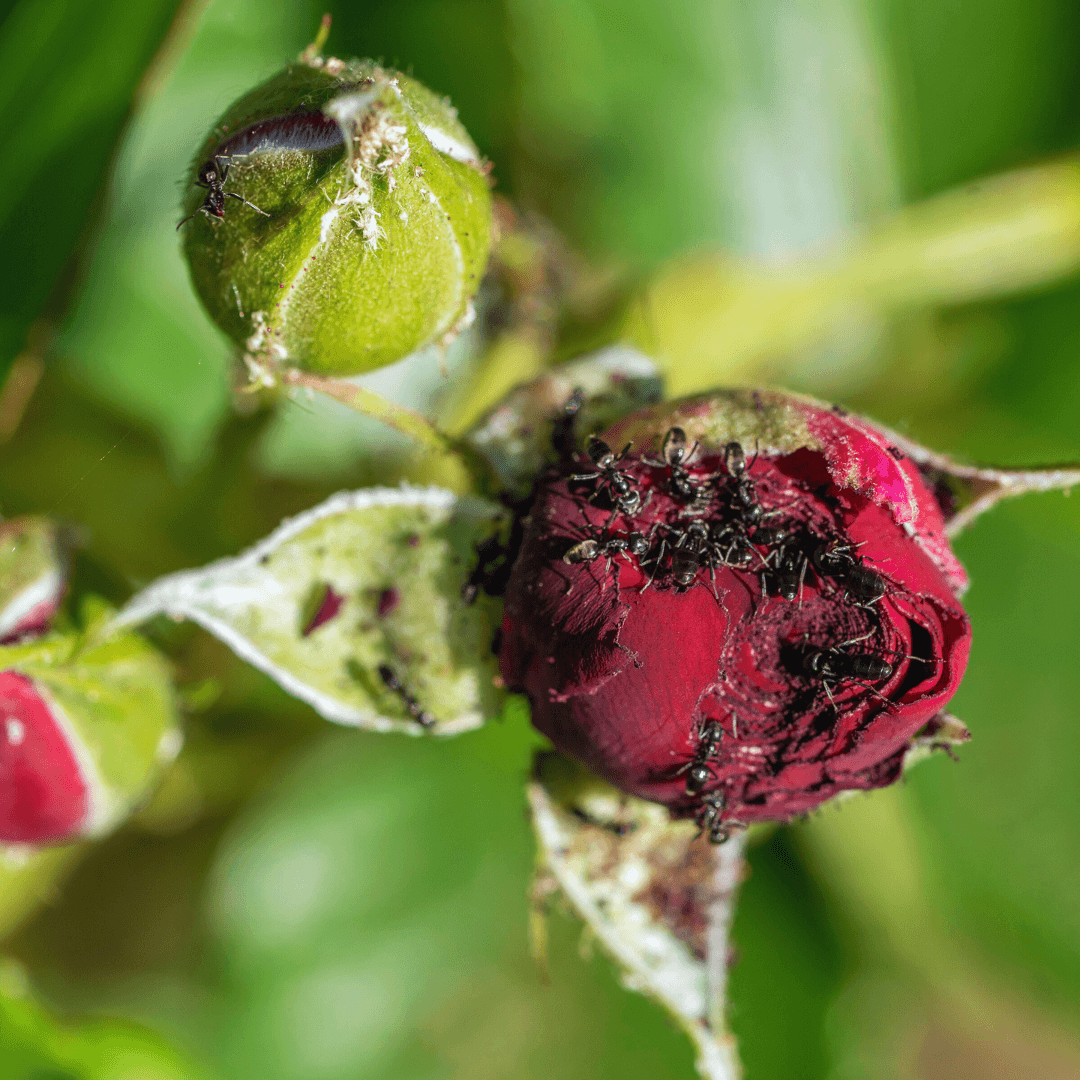
1. Pest Infestations
Despite the use of companion plants, pests may still pose a problem. In such cases, consider introducing natural predators like ladybugs, which can help control aphids and other pests.
Organic pest control procedures, such as neem oil or insecticidal soap, can be effective. Regularly inspect your plants and take swift action at the first sign of infestation to prevent pests from becoming a more significant issue.
2. Disease Outbreaks
Companion plants can help lessen the disease risk but cannot eliminate it. If you notice signs of disease on your roses, promptly remove affected leaves or plants to prevent the spread.
Appropriate treatments, such as fungicides or copper sprays, can help manage fungal infections like black spots or powdery mildew.
Ensuring adequate air circulation and avoiding overhead watering can also reduce the likelihood of disease.
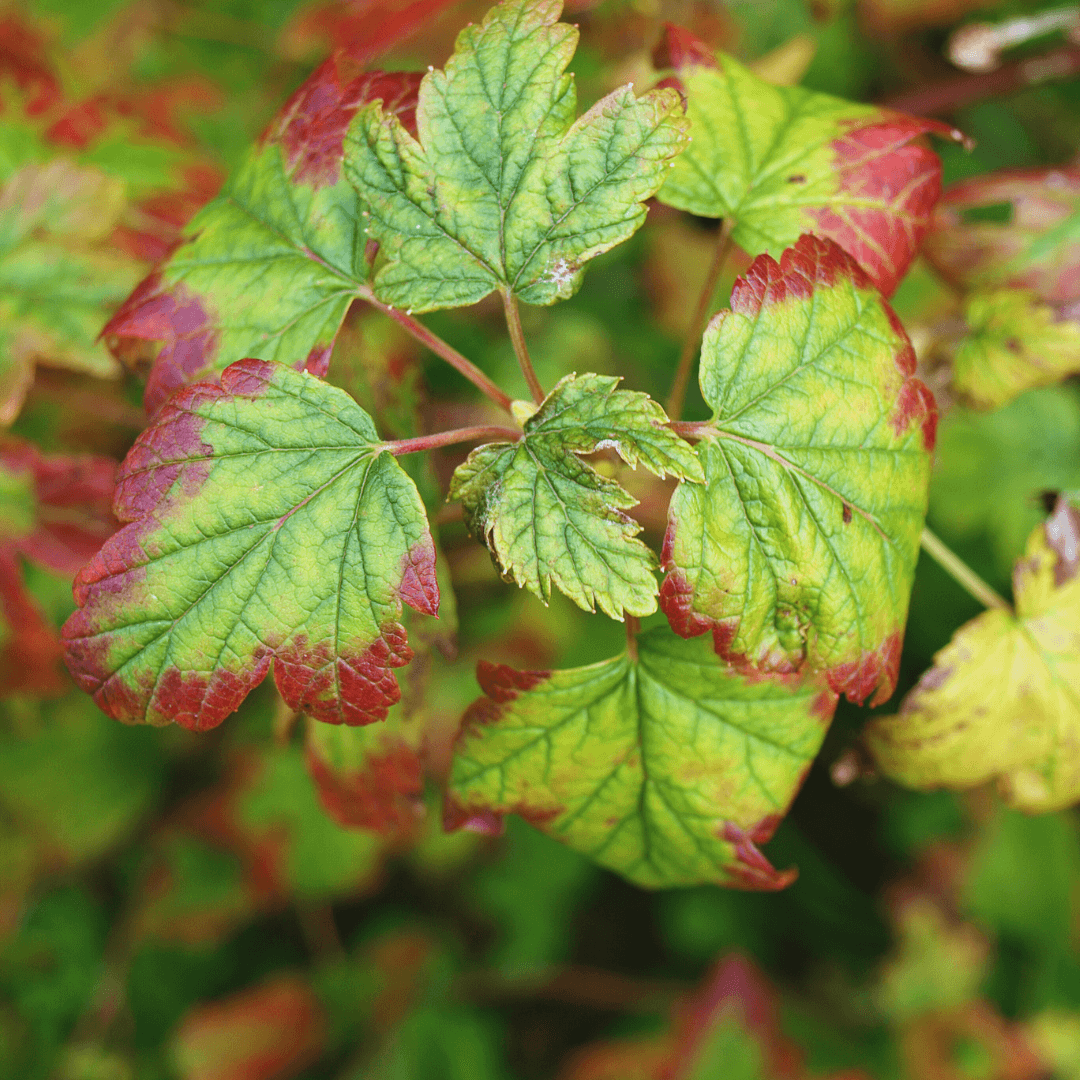
3. Nutrient Deficiencies
Companion plants can compete with roses for nutrients, leading to deficiencies. To ensure your roses receive adequate nutrition, regularly fertilize them with a balanced, slow-release fertilizer.
Add compost or well-rotted manure to increase your soil's fertility and structure. You may ensure that companion plants and roses grow together by carrying out a soil test to pinpoint specific nutrient deficits and take appropriate action to rectify them.
4. Watering Issues
Different plants have varying water requirements, which can complicate watering schedules. Ensure that your roses and companion plants receive adequate water by setting up a drip irrigation system that can be adjusted for different zones.
If this is not feasible, consider watering plants separately based on their needs. Mulching can also help retain soil moisture, reduce watering frequency, and benefit all plants in the garden.
5. Invasive Companion Plants
Some companion plants, like mint, can become invasive and outcompete roses for resources. To prevent these plants from spreading uncontrollably, plant them in containers or designated areas where their growth can be managed.
Regularly check and prune invasive species to keep them in check. Choosing non-invasive alternatives or monitoring their growth closely can help maintain the balance in your rose garden.
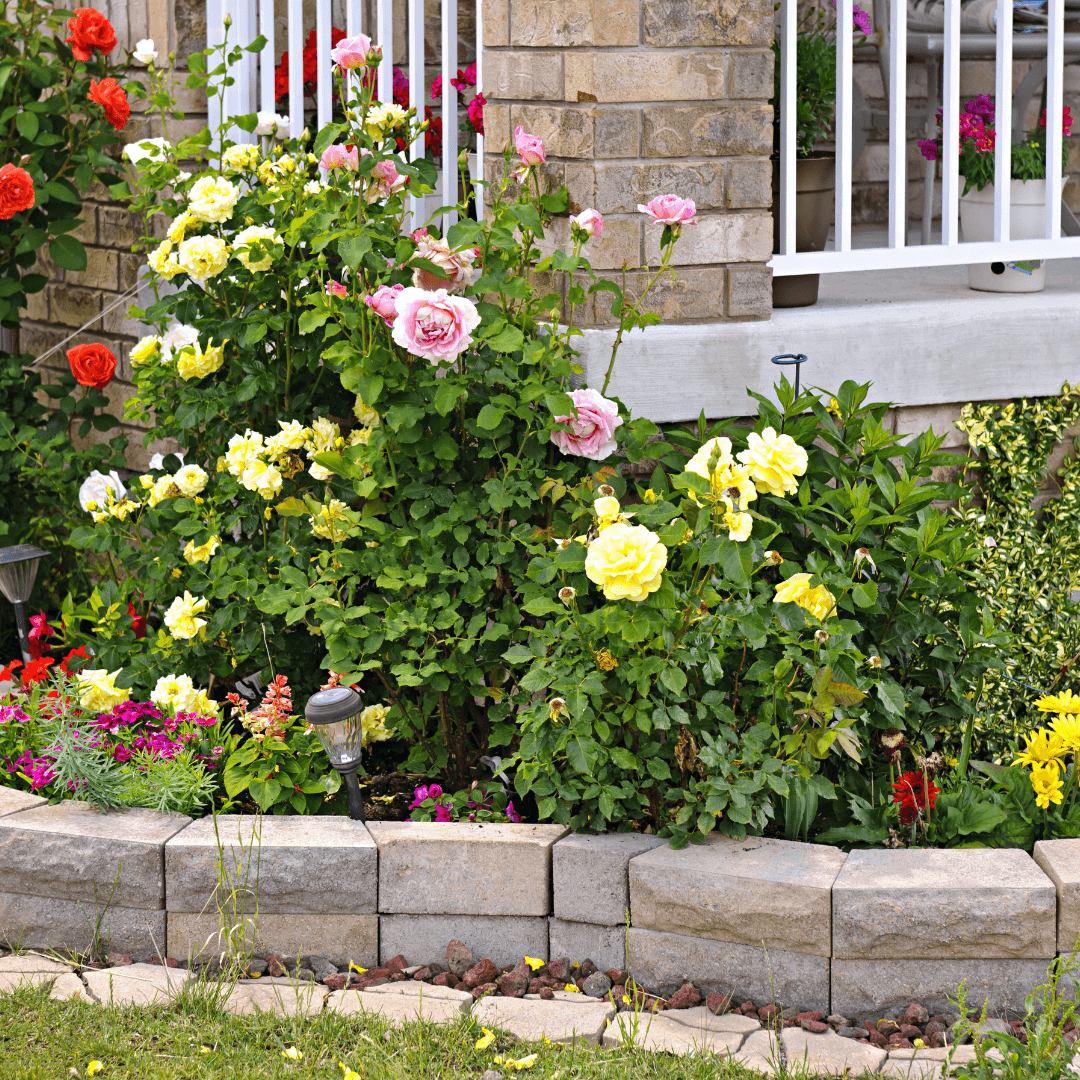
Seasonal Guide For Companion Planting With Roses
Companion planting with roses can be a year-round endeavour. Here is a seasonal guide to help you plan and maintain your companion plantings throughout the year:
1. Spring
In early spring, they plant new roses and their companions. Start with hardy herbs like thyme and chives, which thrive in cooler temperatures and deter pests.
Early-flowering bulbs such as alliums add early-season colour and help repel aphids. Apply a fresh layer of natural mulch around your roses to retain moisture, suppress weeds, and enrich the soil.
Prune roses to remove dead or damaged wood, promoting healthy growth. Planting companions early allows them to establish before the summer heat, creating a robust and supportive environment for your roses.
2. Summer
During the hot summer months, ensure your roses and companion plants receive adequate water, especially during dry spells.
Mulch assists in retaining soil moisture, reducing the need for frequent watering. Regularly monitor for pests and diseases; introduce beneficial insects like ladybugs; and use organic pest control procedures such as neem oil or insecticidal soap to manage outbreaks.
Deadhead spent blooms on both roses and companion plants to encourage further blooming. Additionally, maintain proper air circulation around your plants to prevent fungal infections, ensuring a healthy and vibrant garden.
3. Fall
Fall is a prime time to plant garlic around your roses. Garlic's antifungal properties deter pests and enhance soil health.
Add marigolds and other fall-blooming flowers like asters to extend the garden's colour display. To prevent overwintering pests and diseases, thoroughly clean up by removing any dead or diseased plant material.
Adding compost or organic matter in the fall improves soil structure for the next growing season. Mulch your garden to protect plants and maintain soil warmth, preparing your roses and companions for winter.
4. Winter
In winter, protect your roses by mulching heavily around their bases to insulate roots against freezing temperatures.
Consider planting winter-hardy companions like creeping Jenny, which add greenery and suppress weeds even in cold weather.
Use the winter months to plan your garden layout for the coming year. Review the performance of your current companion planting scheme and decide on any changes or additions.
This downtime is ideal for ordering seeds, preparing tools, and planning the planting schedule for the next growing season, ensuring a well-organized and thriving garden.
Conclusion
In conclusion, companion planting with roses is a rewarding gardening practice that can intensify your garden's health, beauty, and productivity.
You can enjoy a more vibrant and resilient rose garden by carefully selecting and strategically planting companion plants.
Assess your garden conditions, consider plant compatibility, and maintain good garden practices to maximize companion planting benefits.
Whether you are a seasoned gardener or a novice, incorporating companion planting with roses into your gardening routine can lead to healthier plants, fewer pests, and a more diverse and beautiful garden.
Start experimenting with different combinations of companion plants and discover the distinctive benefits they can bring to your rose garden.
I trust you enjoyed this article on Companion Planting With Roses. Please stay tuned for more blog posts soon. Take care!
JeannetteZ
>>>Please click here to read my all-inclusive article, About The Essential Companion Planting Guide<<<
Your Opinion Is Important To Me
Do you have thoughts, ideas, or questions? I would love to hear from you. Please leave me your questions, experiences, and remarks about this article, Companion Planting With Roses, in the comments section below. You can also email me at Jeannette@Close-To-Nature.org.
Disclosure
This post may contain affiliate links. As an Amazon Associate and other affiliate programs, I earn from qualifying purchases at no extra cost to you. Please read my full affiliate disclosure.
You might also enjoy these blog posts:
How To Create A Healing Garden
How To Prepare Soil For Planting Herbs
Hummingbirds Of Costa Rica: A Comprehensive Guide

